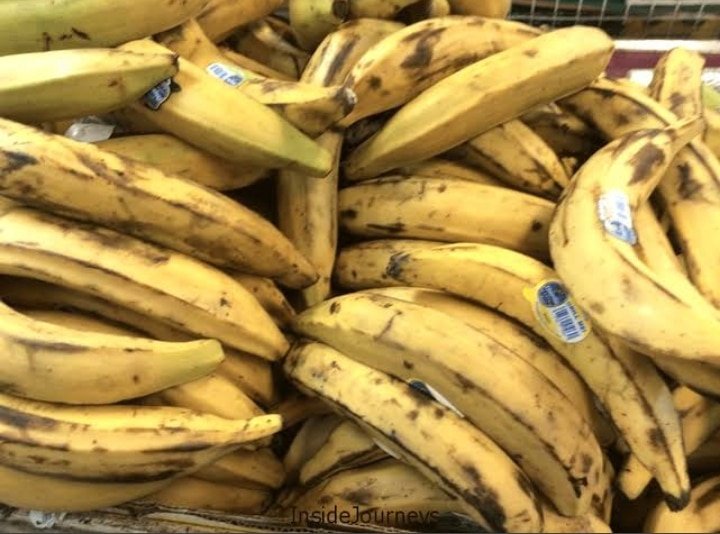Plantains are a nutritious food item with many potential health benefits, such as being a source of vitamins, fiber, potassium, and antioxidants.
They are a staple part of the cuisine in Africa, Asia, and Latin America.
Keep reading to learn more about plantains, including their nutrition profile and how they may be beneficial to our health.
What Are Plantains.
Plantains (Musa x paradisiaca) are a member of the banana family. They are a major food staple in Africa, and they also form part of the diet in Latin America.
Unlike bananas, people usually cook plantains before eating them. Cooking methods include frying, baking, and boiling.
People can also eat plantains at different stages of ripeness, from when the fruit is green through to when it is yellow and black.
Drying and grinding green plantains produces a flour that people use in Caribbean and West Indian cooking.
Potential health benefits
People can eat plantains as part of a healthful diet. They are high in carbs, however, so if a person is trying to manage their weight, they should be aware of portion size.
Also, it may be preferable to bake or boil plantains rather than frying them.
That said, eating plantains in moderation can greatly contribute to a healthful diet, as they contain essential vitamins, minerals, and fiber.
The sections below outline some of the potential health benefits of plantains.
They are a good source of fiber.
Fiber is an essential part of the diet and helps regulate a person’s bowel movements.
Fiber also appears to reduce the risk of developing various conditions, including:
Heart disease
Diabetes
Constipation
diverticular disease
The recommended DV for fiber is 28. Including 1 cup of baked plantain as part of a meal can contribute just over 3 g toward this target.
People can maintain their fiber intake by including a wide variety of fruits and vegetables in their daily diet.
They are rich in antioxidants
According to one 2020 study. plantains naturally contain beneficial plant compounds, including polyphenols and flavonoids.
These compounds act as antioxidants and help fight free radicals. Free radicals cause oxidative stress and damage in the body.
Also, a 2015 study suggests that replacing 10% of wheat flour with plantain flour increased the antioxidants and fiber in baked cookies.
They help support the immune system
Plantains are a good source of vitamin C, and including them as part of a varied diet can help support the immune system.
However, heat and light can destroy vitamin C. So, when cooking plantains, use as little non-boiling water as possible and only cook them for a short period of time.
Plantains also contain vitamin A. According to one 2018
vitamin A is anti-inflammatory and helps regulate immune function.
They contain potassium, which may lower blood pressure
Potassium is essential for the normal functioning of the heart, nerves, and muscles. It helps metabolize carbs and synthesize protein.
Eating a potassium rich diet may help regulate blood pressure and lower the risk of stroke.
Getting enough potassium in the diet helps balance sodium, which can increase blood pressure. Some people may experience high blood pressure when following a diet high in sodium.
Plantains are a good source of potassium. Including them in the diet may help regulate the body’s sodium and potassium balance.
Having overweight also increases the risk of high blood pressure, which, along with insulin resistance, forms the condition metabolic syndrome.
A 2920 in rats suggests that plantain extracts helped regulate hormones associated with obesity and showed antidiabetic effects. However, further studies are necessary to confirm that these benefits also apply to humans.
They contain vitamin B6, which is good for a healthy heart and mind
Vitamin B6 performs a wide variety of functions in the body. It is essential for the metabolism of macronutrients, healthy red blood cells, and neurotransmitters.
Eating 1 cup of plantain contributes 17% toward a person’s vitamin B6 requirement.
According to the office of dictary supplements. vitamin B6 may have the following health benefits:
- It may reduce cardiovascular risk by lowering homocysteine.
- It may support brain health and reduce cognitive decline.
- It may reduce the symptoms of premenstrual syndrome.
- It may help reduce the symptoms of morning sickness.
Another study indicates that vitamin B6 (30 mg daily) and magnesium (300 mg daily) reduced depressive symptoms by 40% over an 8-week period in adults with depression and anxiety. Plantains contain good levels of both vitamin B6 and magnesium.
Summary
Plantains are a carb-rich food and a good source of fiber, vitamins, and minerals. They also contain antioxidants that fight free radicals.
With good levels of vitamin C, they can also support immune function. Likewise, their vitamin B6 content may reduce cardiovascular risk and improve mood.
However, people who are trying to manage their weight need to be mindful of portion size and cooking method due to the high levels of calories and carbs that plantains contain.
The bottom line
While it’s possible to confuse bananas with plantains because of the two fruits’ visual similarities, you’ll find it’s easy to tell them apart after tasting them.
Their nutritional content and potential health benefits are similar, as are some of their applications in the kitchen.
Plantains are starchy and contain less sugar than bananas. They work well in savory dishes, while bananas are easily used in desserts or on their own.
Both fruits are nutritious, whole foods and can be included as part of a healthy diet.



